Essays
Essays
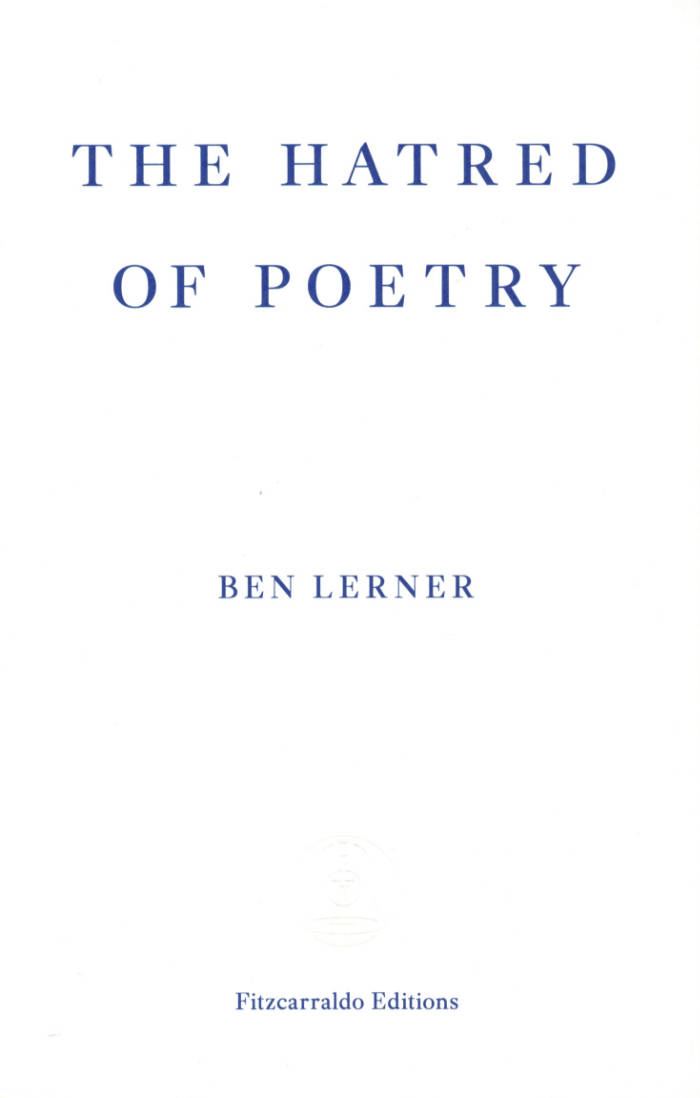
The Hatred Of Poetry
No art has been denounced as often as poetry. It’s even bemoaned by poets: ‘I, too, dislike it,’ wrote Marianne Moore. ‘Many more people agree they hate poetry,’ Ben Lerner writes, ‘than can agree what poetry is. I, too, dislike it and have largely organized my life around it and do not experience that as a contradiction because poetry and the hatred of poetry are inextricable in ways it is my purpose to explore.’
In this inventive and lucid essay, Lerner takes the hatred of poetry as the starting point of his defence of the art. He examines poetry's greatest haters (beginning with Plato’s famous claim that an ideal city had no place for poets, who would only corrupt and mislead the young) and both its greatest and worst practitioners, providing inspired close readings of Keats, Dickinson, McGonagall, Whitman, and others. Throughout, he attempts to explain the noble failure at the heart of every truly great and truly horrible poem: the impulse to launch the experience of an individual into a timeless communal existence. In The Hatred of Poetry, Lerner has crafted an entertaining, personal, and entirely original examination of a vocation no less essential for being impossible.
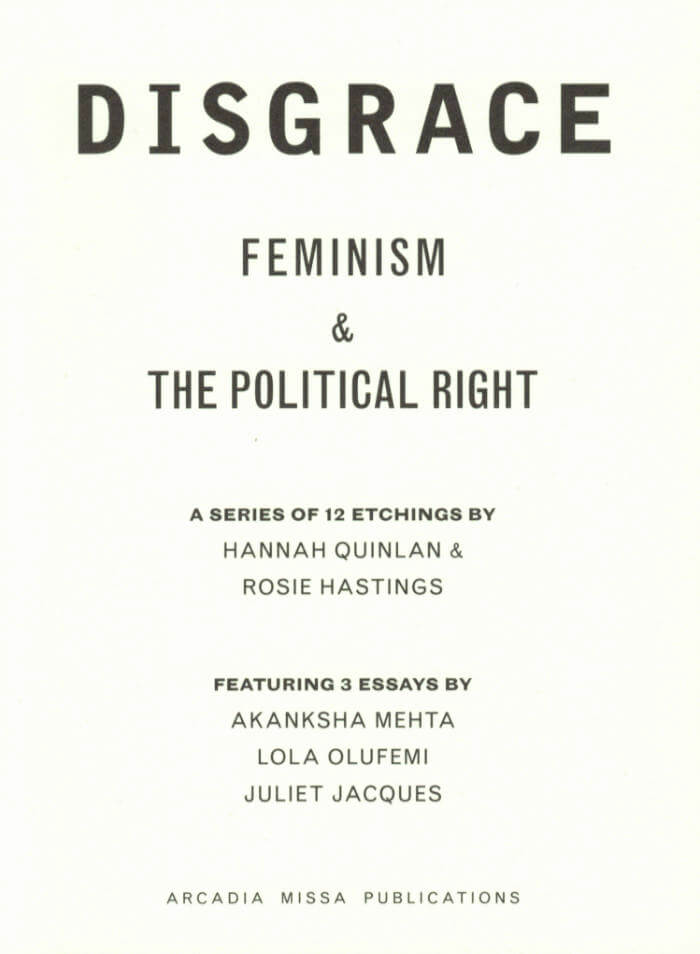
Disgrace: Feminism And The Political Right
Rosie Hastings, Hannah Quinlan
DISGRACE: Feminism and the Political Right explores the history of conservative feminism in the UK from the Edwardian period to today. Expanding on Hannah Quinlan and Rosie Hastings’ research for their eponymous exhibition, the book aims to provide contextual information for the viewer, both as a resource on the history of feminism on the political right and to provide a deeper historical and political insight into the works within the exhibition.
The book centres around a timeline created by 12 etchings, with three essays covering what the artists have identified as three significant time periods, mapping the connections between the various historical manifestations of conservative feminism that lead to the current moment. An essay by Akanksha Mehta, a lecturer in Gender, Sexuality, and Cultural Studies and the co-director of the Centre for Feminist Research at Goldsmiths, considers the nature of the women’s suffrage movement, focusing on the relationship between the suffragettes and eugenics discourse. A polemical text by Lola Olufemi, a black feminist writer and organiser with the London Feminist Library, questions the women’s liberation movement and ‘sex wars’ of the mid 20th century. In the final essay – alongside etchings exploring ‘free-market feminism’, Theresa May’s ‘Women2Win’ campaign and the proliferation of transphobic rhetoric – writer, filmmaker and journalist Juliet Jacques uses Caryl Churchill’s innovative 1982 play ‘Top Girls’ to trace the trajectory of women in power, from Thatcher into the future of feminism.
FEATURING 3 ESSAYS BY:
Akanksha Mehta
Lola Olufemi
Juliet Jacques

Entropia Vol. 1 & 2
Entropia (vol. I & II) – written by William Kherbek and edited in collaboration with Jack Clarke – is a publication which seeks to recount and re-examine a decade of artistic curation, production, and critique between London, Berlin, and other urban art centres from 2010 to 2020.
Comprised of two volumes, this publication contains a compendium of over one hundred reviews and interviews with luminaries of contemporary art (Vol I), as well as a speculative attempt to create a newly generated algorithmic art(ificial) critic (Vol II). Together they serve to document, excoriate, and theorise an art world which is simultaneously hegemonic and precarious, complicit and constructive, driven by values, yet fed by extraction, all filtered through Kherbek’s precise, aphoristic, acerbic, lens.
The publications include contextual contributions from both Josie Thaddeus-Johns, writer for the New York Times, The Financial Times, Frieze; and Rozsa Farkas, director of London-based gallery Arcadia Missa.

Being a Chair. Essays on Choreographic Poetry
Imagine words approaching a dance eyes closed or sleepwalking, words adrift beyond what can be envisioned beforehand, prompting writer and reader alike into a zone where time multiplies, where bodies grow footnotes and paper skin, savour the taste of language, attune their ears to the wavelength of blue. In a string of brief essays on her practice of writing choreographic poetry and scores, Janne-Camilla Lyster offers reflections on time, memory and the senses, on translation, punctuation and rhythm, on mistakes and crevasses, on the impossible and yet other things. What does it take to enter another form of existence, say, a chair?
Janne-Camilla Lyster is a writer, dancer and choreographer. She has published poetry, novels, essays and plays.
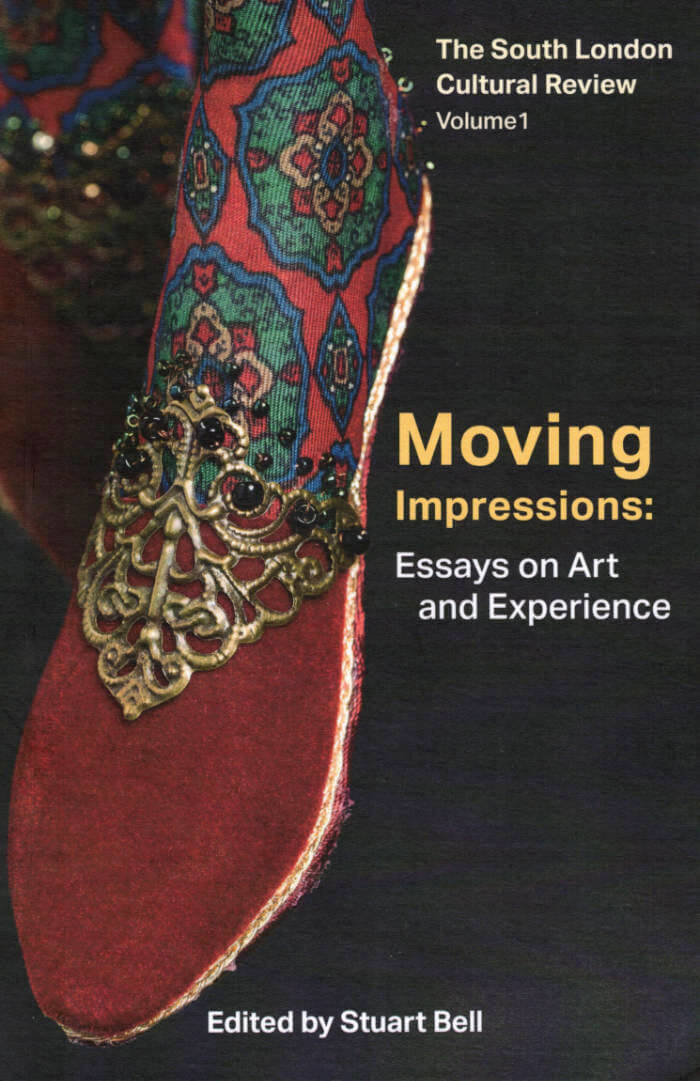
The South London Cultural Review #1: Moving Impressions
A collection of 12 essays written by academics, writers and thinkers, Moving Impressions: Essays on Art and Experience celebrates the artistic and cultural works which have inspired, and continue to inspire, this volume’s contributors as scholars, teachers, and writers. The chapters celebrate the ‘moving’ power - personal and political - of works which engage with questions of identity, race, self-and-other relations, and sexuality.
These highly personal chapters span a multitude of artists, particularly writers of colour, through exploration of their applications to neurodiversity, POC and LBGTQ+ communities, and feminism. Works explored are diverse in origin and heritage, spanning personal and political culture from South Africa to Trinidad, India to France, Nepal to The United Kingdom. These include autobiography, novels, short stories, plays, painting, sculpture, and film.
Essays by Rowland Abiodun, Stuart Bell, Amrita Dhar, Natalya Din-Kariuki, Oscar Guardiola-Rivera, Madhu Krishnan, Isabelle McNeill, Maryam Mirza, Adam Roberts, Laura Seymour, Kirsten Tambling, Emma Wilson.

Katsura Hito
This publication introduces the Katsura tree as a point of departure from which to map a rich ecology of relations and experiences with materials (recipes, exercises, and images) that accompany stories—fictional and “factual”—of a multi-sensorial experience of the fall season.
The writing questions modern/colonial binaries like east and west, nature and culture, fact and fiction, higher and lower senses, and the human and non-human. It calls readers to not only exercise awareness of their environments but to imagine along with them.
The Katsura tree is an elemental spirit of the Japanese landscape in the fall season. As the transformation of the Katsura’s colored leaves and their enchanting sweet scent changes the sensorial experience of their environment, they remind us of our connection to the seasons. The tree’s embeddedness in Japanese folklore and traditional storytelling leads us to a yokai supernatural spirit, legend, and gardener: Katsura-Otoko, or, in Chinese; Wu Gang. His efforts in pruning the Katsura tree on the moon to cause lunar cycles connects cosmology to ecology as a natural part of our earthly existence. The story’s premise serves as an inspiration and starting point for this book.

Space Crone
Ursula K. Le Guin witnessed and contributed to many of the twentieth century’s rebellions and upheavals, including women’s liberation, the Civil Rights movement and US anti-war and environmental activism.
Spanning fifty years of her life and work, Space Crone brings together Le Guin’s writings on feminism and gender for the first time, offering new insights into her imaginative, multispecies feminist consciousness: from its roots in deep ecology and philosophies of non-violence to her self-education about racism and her writing on motherhood and ageing.
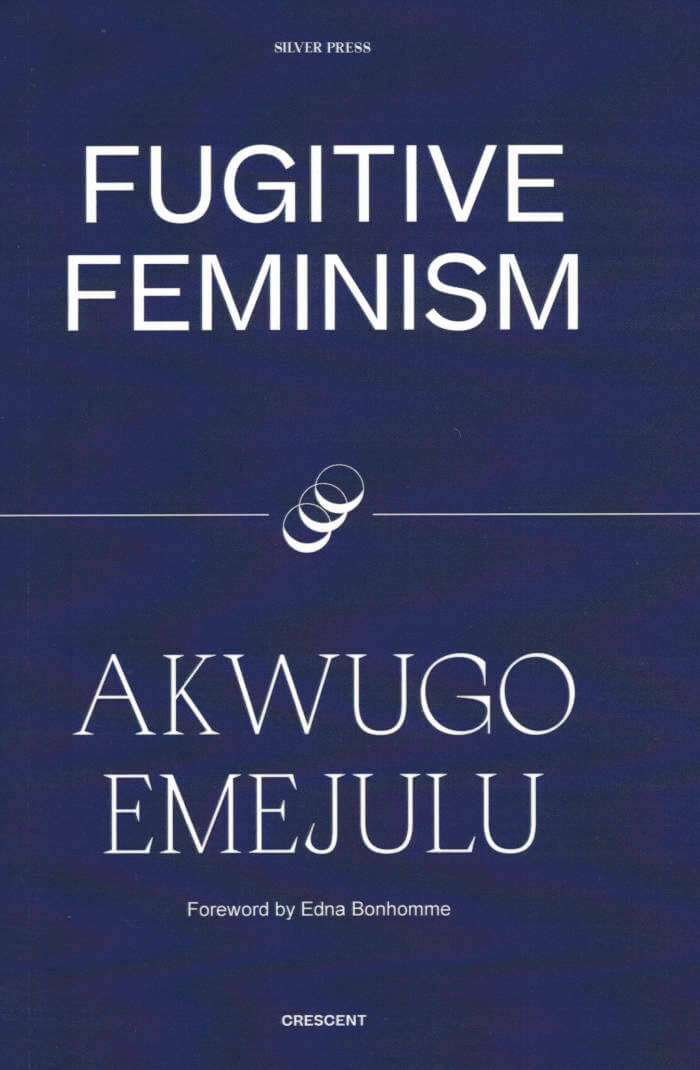
Fugitive Feminism
Humanity has always excluded Others on the basis of race and gender. What happens to people who choose to flee, following in the footsteps of those who resisted enslavement?
This audacious manifesto draws on the legacies of bell hooks, Audre Lorde, Angela Davis and others to consider the ways in which Black women have been excluded from, struggled to achieve and opted to reject the category of ‘human’. Sociologist Akwugo Emejulu argues that it is only through embracing the status of the ‘fugitive’ that Black women can determine their own liberation. Fugitive Feminism is a call for the collective process of speculative dialogue and a bold new model for action.
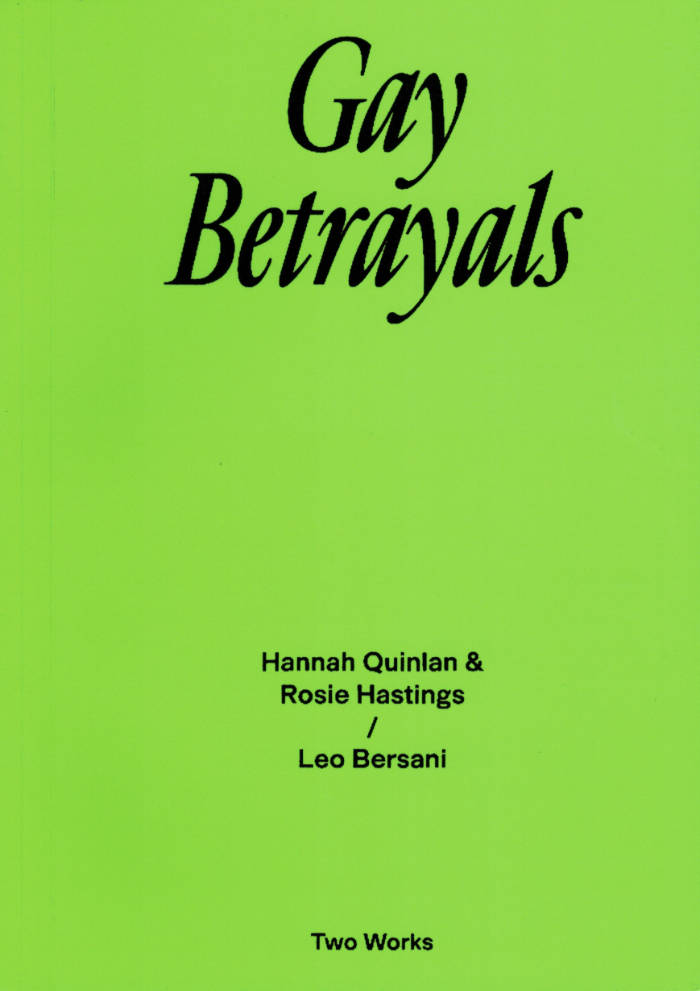
Gay Betrayals: Two Works Series Vol. 5
Leo Bersani, Hannah Quinlan and 1 more
Bersani’s prescient and long unavailable polemic against gay assimilation, a plea for “antimonogamous promiscuity,” illustrated with artistic interventions
In 1997, during a symposium at Centre Pompidou, pioneering queer theorist Leo Bersani presented a prescient critique of the assimilative tendencies that made “gays melt into the very culture they like to think of themselves as undermining.” For Bersani, queer activism, mired in micropolitics, had relinquished the radical task of reconfiguring the horizon of the possible. Later published as “Gay Betrayals” in the pioneering (and now unavailable) collection Is the Rectum a Grave?, Bersani’s intervention champions a truly disruptive vision of homosexuality, one that betrays the relational, identitarian and communitarian foundations of bourgeois heterosexual respectability through “antimonogamous promiscuity.”
Building on artistic research into the politics of queer spaces and culture some 20 years later, British artist duo Hannah Quinlan and Rosie Hastings revisit Bersani’s polemic with a response in three acts. Through a kaleidoscopic array of drawings, preparatory sketches and egg tempera paintings, a narrative of everyday (homo)sociality emerges.
Leo Bersani (1931–2022) was an American theorist best known for his books Is the Rectum a Grave?, Homos and Receptive Bodies. Born in the Bronx, he graduated from Harvard in 1952 and eventually joined the University of California, Berkeley, where he became an influential teacher, remaining there for the rest of his career.
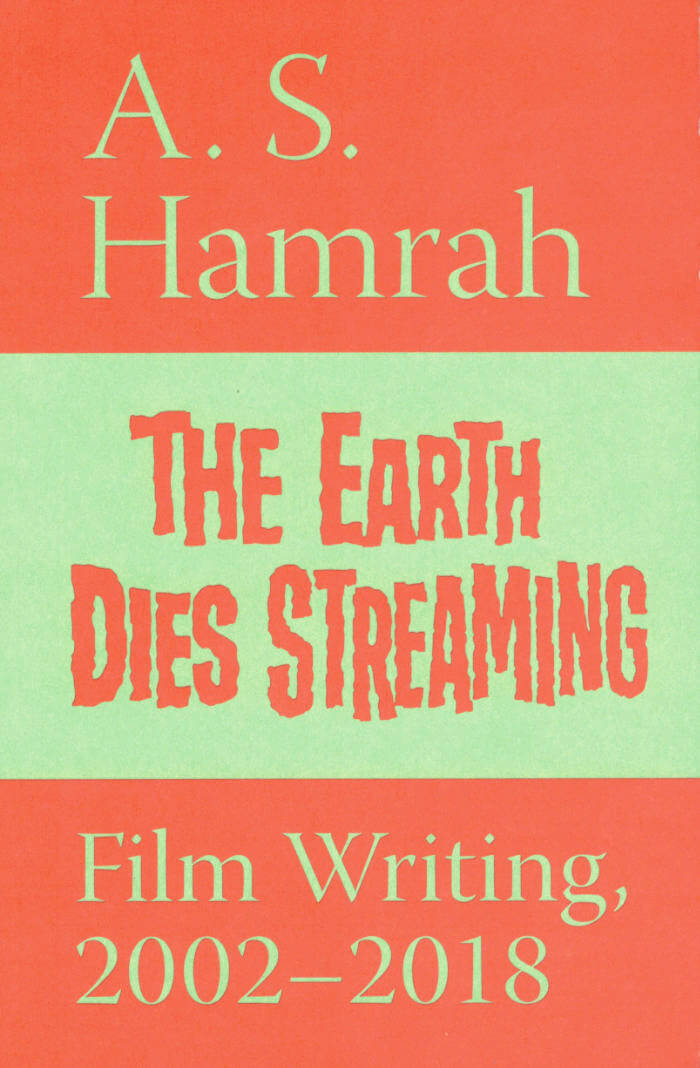
The Earth Dies Streaming: Film Writing, 2002-2018
The Earth Dies Streaming collects the best of A. S. Hamrah's film writing for n+1, The Baffler, Bookforum, Harper's, and other publications. Acerbic, insightful, hilarious, and damning, Hamrah's aphoristic capsule reviews and lucid career retrospectives of filmmakers and critics have taken up the mantle of serious American film criticism pioneered by James Agee, Robert Warshow, and Pauline Kael and carried it into the 21st century.
Taken together, these reviews and essays represent some of the best film criticism in the English language. The Earth Dies Streaming showcases a remarkable critical intelligence while offering a cultural history of the cinema of our times.

The Narco-Imaginary: Essays Under the Influence
Written according to its own dictum, "language is the universal inebriant," these epistolary essays, personal narratives, meditations on avant-garde writers, and unorthodox forays into the "narco-imaginary"—the habits and conventions surrounding literary and cultural representations of drug use—attend to the residue of transient impressions that remain, long after the delirium of creative activity subsides.
Ramsey Scott teaches at Brooklyn College, CUNY. His essays, poems, and fiction have appeared in various print and online publications, including the Southwest Review, the Seneca Review, The Massachusetts Review, Shampoo, Tarpaulin Sky, Confrontation, and Mirage #4/Period(ical). The Narco-Imaginary is his first book.

Hatred of Translation
Hatred of Translation thinks through translation with an emphasis on its disaggregation. These pieces address, sometimes obliquely, often with effrontery, the works of René Char, Hervé Guibert, Hilda Hilst, Danielle Collobert, Frankétienne, Mizoguchi Kenji, Ingeborg Bachmann, Kobayashi Masaki, and Marguerite Duras. Resolutely resistant to anything resembling a theory of a thing, these pieces provoke a persistent commitment to thinking in the place of theorizing. Where the French pensée means both of aphoristic thought and of the pansy, Hatred of Translation seeks a garden in the midst of body such as it is occupied by language.
Nathanaël is the author of more than a score of books written in English or in French, including Pasolini's Our (2018), Feder (2016); L'heure limicole (2016) and Sisyphus, Outdone. Theatres of the Catastrophal (2012). The French-language notebooks (2007-2010), gathered together in N'existe (2017), were recast in English as The Middle Notebookes (2015), which received the inaugural Publishing Triangle Award for Trans and Gender-Variant Literature. The 2009 essay of correspondence, Absence Where As (Claude Cahun and the Unopened Book) was first published in French as L'absence au lieu (2007). Nathanaël's work has been translated into Basque, Greek, Slovene, and Spanish (Mexico), with book-length publications in Bulgarian and Portuguese (Brazil). The recipient of the Prix Alain-Grandbois for ...s'arrête? Je (2008), Nathanaël has translated works by Catherine Mavrikakis, Frédérique Guétat-Liviani, and Hilda Hilst (the latter in collaboration with Rachel Gontijo Araújo). Nathanaël's translation of Murder by Danielle Collobert was a finalist for a Best Translated Book Award in 2014. Her translation of The Mausoleum of Lovers by Hervé Guibert was recognized by fellowships from the PEN American
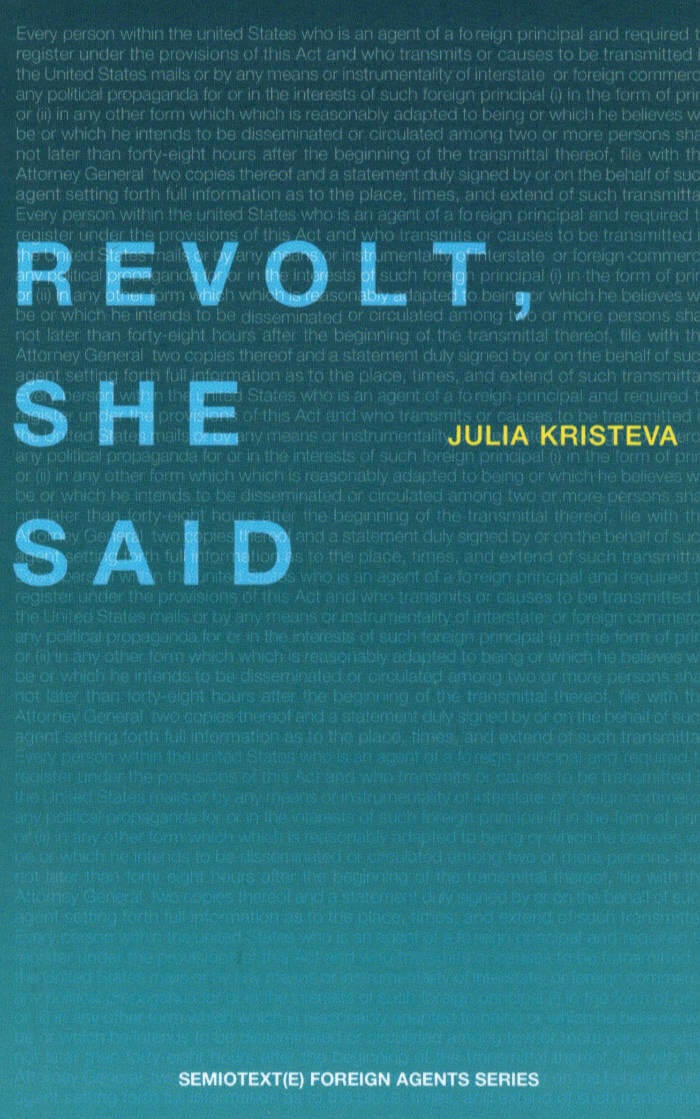
Revolt, She Said
"May '68 in France expressed a fundamental version of freedom: not freedom to succeed, but freedom to revolt. Political revolutions ultimately betray revolt because they cease to question themselves. Revolt, as I understand it—psychic revolt, analytic revolt, artistic revolt—refers to a permanent state of questioning, of transformations, an endless probing of appearances. In this book, Julia Kristeva extends the definition of revolt beyond politics per se. Kristeva sees revolt as a state of permanent questioning and transformation, of change that characterizes psychic life and, in the best cases, art. For her, revolt is not simply about rejection and destruction—it is a necessary process of renewal and regeneration."
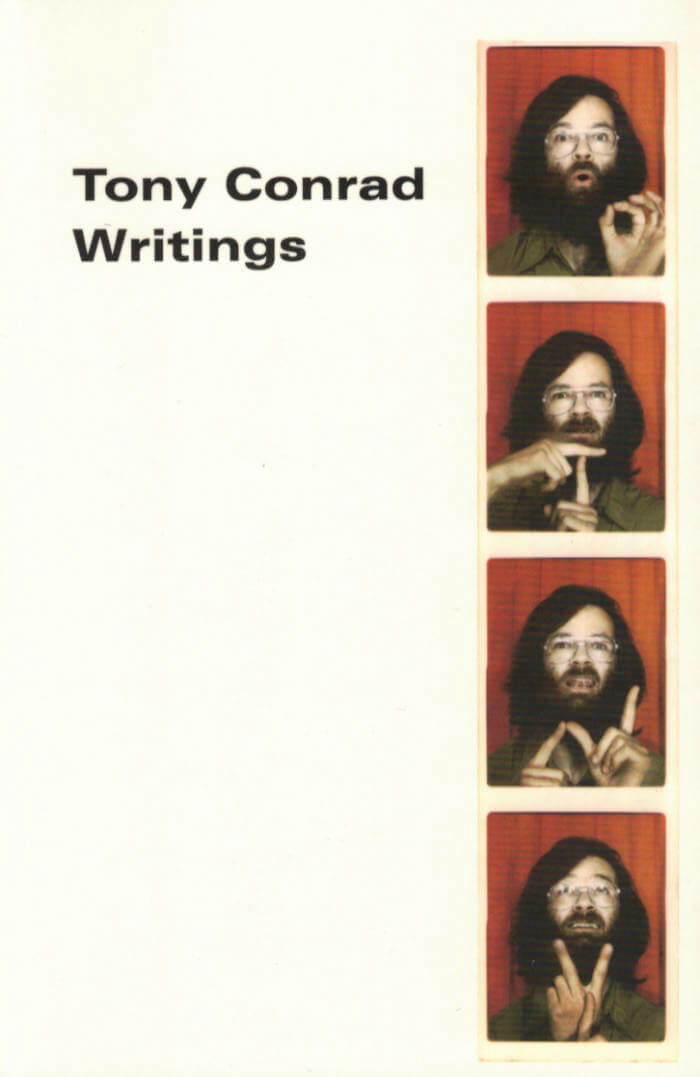
Tony Conrad: Writings
Essential writings from the downtown New York legend and polymath, pioneer of both structural film and drone music.
Tony Conrad (1940-2016) was a legendary multidisciplinary artist known for his groundbreaking contributions in experimental film, music, and video. Upon moving to New York City in 1962, he began making music with John Cale, La Monte Young and Marian Zazeela in the Theatre of Eternal Music, a group that helped shape what would come to be known as minimalist music. He later went on to perform with Lou Reed in a pre-Velvet Underground band called The Primitives and cut a classic 1972 record with the German Krautrock band Faust that set a new standard for drone music.

Some Rockin' – Dan Graham Interviews
A collection of Dan Graham's interviews and conversations with a wide array of individuals from various backgrounds and disciplines.
Dan Graham was a contrarian. His art confronted viewers with a multiplicity of possible perceptions and intersubjective experiences. Some Rockin' was his last project and—through conversations with friends, artists, architects, curators, and former assistants—articulates his sensitivity to context, media, and people. The interviews address rock music and urbanism, humor and astrology, history and the hybrid form. Mediating historical and social experience was a major concern of his. "The Museum in Evolution," an essay he finished just before his death, and published here, highlights that nothing is final in becoming. Rather, it allows for: Some Rockin'.

Eros the Bittersweet: An Essay
Anne Carson's remarkable first book about the paradoxical nature of romantic love. Since it was first published, Eros the Bittersweet, Anne Carson's lyrical meditation on love in ancient Greek literature and philosophy, has established itself as a favorite among an unusually broad audience, including classicists, essayists, poets, and general readers.
Beginning with the poet Sappho's invention of the word "bittersweet" to describe Eros, Carson's original and beautifully written book is a wide-ranging reflection on the conflicted nature of romantic love, which is both "miserable" and "one of the greatest pleasures we have."

A propos du CD-ROM Immemory de Chris Marker
French/English paperback with essays by Raymond Bellour and Laurent Roth on Chris Marker's Immemory.
'Chris Marker's CD-ROM Immemory is most easily imagined as a digitally stored attic room, divided into zones of memories. Those zones show (fragments of) photographs, engravings, paintings, films, texts, edited or annotated, which are plotted along a number of virtual trajectories that one can traverse: Le Voyage, Le Musée, La Mémoire, La Poésie, La Guerre, La Photo, Le Cinéma.
The central question, borrowed from Marcel Proust, is also the heading of the La Mémoire section: "Qu'est-ce qu'une madeleine?" What charges something with the affect of memory? Why is that one detail, that one book, poem or painting the emotional and essential among all others?' (Witte Raaf 1999)
Yves Gevaert publisher, co-published with the Centre Georges Pompidou, Paris
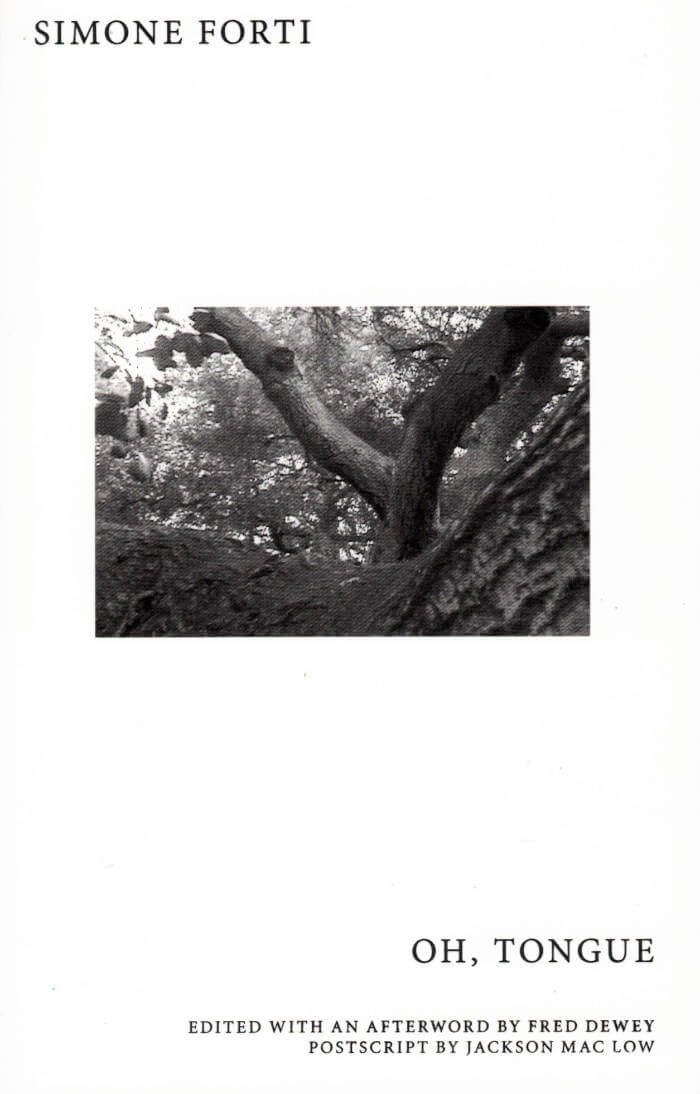
Oh, Tongue (english edition)
A new revised version of the notebook of the legendary American dancer, artist and choreographer Simone Forti in which she shares her poetry as well as her thoughts on dance, the body, writing, the state of the world. A collection of experimental texts, imagined dialogues, news animations and poetic thoughts on life and politics. The book contains an afterword by Fred Dewey and a postscript by poet and Fluxus artist Jackson MacLow.
American dancer and choreographer Simone Forti (born 1935 in Florence, Italy) has been a leading figure in the development of contemporary performance over more than fifty years. Artist, choreographer, dancer, writer, Forti has dedicated herself to the research of a kinesthetic awareness, always engaging with experimentation and improvisation. Investigating the relationship between object and body, through animal studies, news animations and land portraits, she reconfigured the concept of performance and dance. Forti emigrated from Italy with her family via Switzerland to Los Angeles in 1938, where she subsequently studied for four years with choreographer Anna Halprin and has since spent most of her life. She joined the experimental downtown art scene in New York during the emergence of performance art, process-based work and Minimal Art and spent a fruitful time in Rome in the late 1960s, where she used the spaces of L'Attico to study and perform. Her work is seen as a precursor of the famous Judson Dance Theater—a group of artists experimenting with dance, including Trisha Brown, Steve Paxton, and Yvonne Rainer—and Minimal Art, although she prefers to be referred simply as a "movement artist."
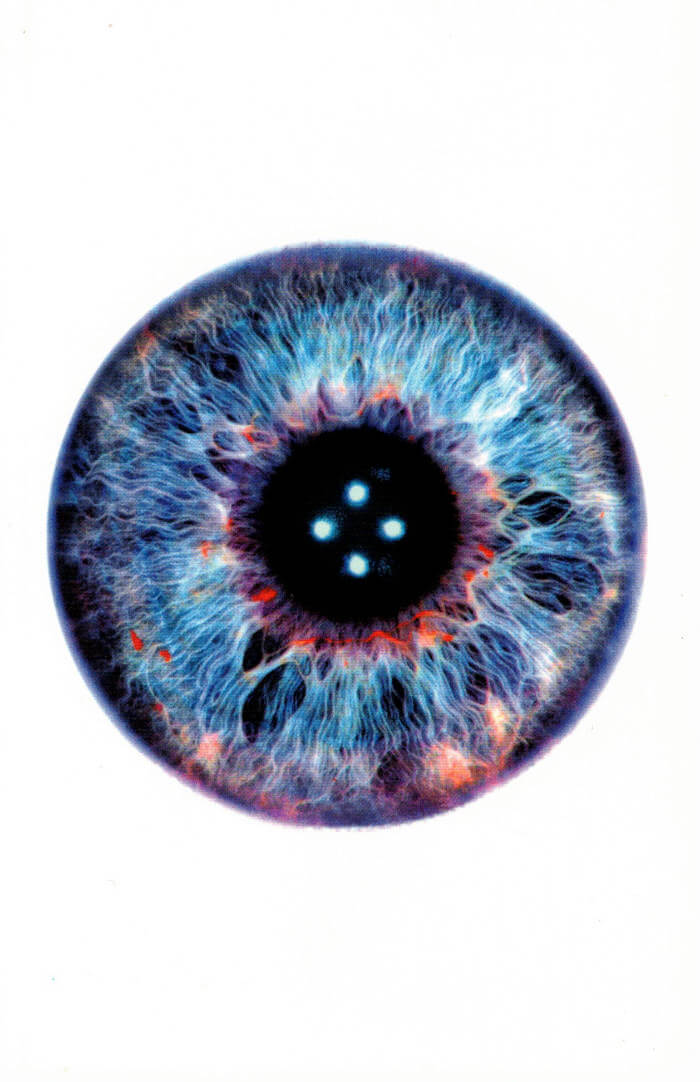
Monitoring Control
Combining art and activism, semiotics and capitalism, art and finance, control and subversion, Monitoring Control by Paolo Cirio represents a critique of the social manipulation imposed by new technologies, while examining the counter-control that individuals can implement to dismantle these forces, sabotage them, and protect themselves.
The book presents a collection of ten texts by Paolo Cirio, artist, hacktivist, one of the most attentive investigators in the artistic field of the effects of the information society. With a text by Bruce Sterling and a conversation between Christian Marazzi, Marco Scotini, and Paolo Cirio himself, it gives visual and verbal form to all the forces that control our existence: new media such as Instagram, Facebook, mugshot websites, Google Street View, etc., highlighting the overt yet covert ways in which these tools control our daily activities and lives.
The volume is accompanied by a gallery of images representing some of the thousands of patents of algorithms collected by Cirio on the web to highlight the tools used on the Internet and by artificial intelligence for surveillance and social manipulation.

Theater, Garden, Bestiary – A Materialist History of Exhibitions
Vincent Normand, Tristan Garcia
This volume both gathers and expands on the results of the research project “Theater, Garden, Bestiary: A Materialist History of Exhibitions” held at ECAL/University of Art and Design Lausanne, and proposes to draft a history of exhibitions sourced from a wide corpus reaching beyond the framework of art institutions. It undertakes a transdisciplinary history, at the nexus of art history, science studies, and philosophy, exploring the role the exhibition played in the construction of the conceptual categories of modernity, and outlines a historiographical model that grasps the exhibition as both an aesthetic and epistemic site.
Contributions by Etienne Chambaud, Elitza Dulguerova, Anselm Franke, Tristan Garcia, Fabien Giraud & Raphaël Siboni, Dorothea von Hantelmann, Yuk Hui, Pierre Huyghe, Sami Khatib, Jeremy Lecomte, Stéphane Lojkine, Rafael Mandressi, Vincent Normand, Peter Osborne, Filipa Ramos, Juliane Rebentisch, João Ribas, Pamela Rosenkranz, Anna-Sophie Springer, Lucy Steeds, Olivier Surel, Etienne Turpin, Kim West, Charles Wolfe.
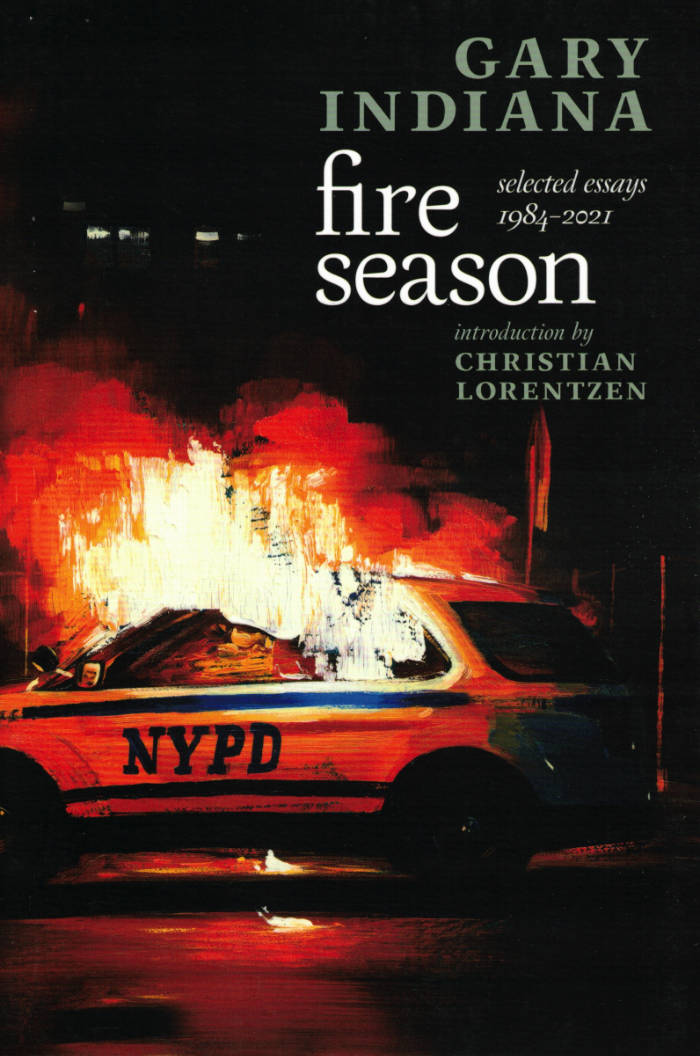
Fire Season: Selected Essays 1984-2021
Whether he's describing Tracy Emin or Warhol, the films of Barbet Schroeder ("Schroeder is well aware that life is not a narrative; that we impose form on the movements of chance, contingency, and impulse....") or the installations of Barbara Kruger ("Kruger compresses the telling exchanges of lived experience that betray how skewed our lives are..."), Indiana is never just describing.
Indiana champions shining examples of literary and artistic merit regardless of whether the individual artist or writer is famous; asserts a standard of care and tradition that has nothing to do with the ivory tower establishment; is unafraid to deliver the coup de grãace when someone needs to say the emperor has no clothes; speaks in the same breath-in the same discerning, insolent, eloquent way-about high art and pop culture. Few writers could get away with saying the things Gary Indiana does. And when the writing is this good, it's also political, plus it's a riot of fun on the page
GARY INDIANA is a novelist and critic who has chronicled the despair and hysteria of America in the late twentieth/early twenty-first century. From Horse Crazy (1989), a tale of feverish love set against the backdrop of downtown New York amid the AIDS epidemic, to Do Everything in the Dark (2003), "a desolate frieze of New York's aging bohemians" ( n+1), Indiana's novels mix horror and bathos, grim social commentary with passages of tenderest, frailest desire. In 2015, Indiana published his acclaimed anti-memoir, I Can Give You Anything But Love, following it up in 2018 with Vile Days, a collection of his art criticism for the Village Voice. Called one of "the most brilliant critics writing in America today" by the London Review of Books, "the punk poet and pillar of lower-Manhattan society" by Jamaica Kincaid, and "one of the most important chroniclers of the modern psyche" by the Guardian, Gary Indiana remains both inimitable and impossible to pin down.

The Autobiography of a Language
Here the mirror image of the almost hallucinatory, heart-rending loss of the familiar is literary defamiliarization. Arsanios both mourns and blasts apart the notion of the mother tongue, reminding us that for each “mother tongue” at least another tongue is silenced. Desire propels her genre-defying writing, which grief notwithstanding still manages to tongue languages, and that is her genius. — Mónica de la Torre
Mirene Arsanios is the author of the short story collection The City Outside the Sentence (Ashkal Alwan). She has contributed essays and short stories to e-flux journal, Vida, The Brooklyn Rail, The Rumpus, and Guernica, among others. Arsanios co-founded the collective 98weeks Research Project in Beirut and is the founding editor of Makhzin, a bilingual English/Arabic magazine for innovative writing. She teaches at Pratt Institute and holds an MFA in Writing from the Milton Avery Graduate School for the Arts at Bard College. Arsanios currently lives in New York where she was a 2016 LMCC Workspace fellow, and an ART OMI resident in fall 2017. With Rachel Valinsky, she coordinated the Friday night reading series at the Poetry Project from 2017–19.

Women Looking at Women Looking at Women
In what ways have women artists come together to investigate their own image? This publication delves into histories of feminist and queer collective practice, expanding on the various ways women claim agency of their identity, via collaborations that connect intergenerational and far-away friendships. Each chapter features artistic and theoretical case studies that discuss images produced by women artists, about women artists; proposing that to gaze upon someone represented with care and autonomy provides more affirmative ways to relate to ourselves. It discovers that to pay homage to overlooked knowledge of women artists builds a case for the artist as researcher. Only by engaging in both roles can we unveil what is not taught in the mainstream and inspire a more inclusive, generous future.
Each aspect of the book’s design is a collaborative endeavour, expanding the notion of individual authorship. It is with this sentiment that creating the publication became research in itself, via collaboration with both direct peers and an extended genealogy.
“Women Looking at Women Looking at Women” is designed by Marijn van der Leeuw, Esther Vane, India Scrimgeour, Hannah Williams and Annemarie Wadlow.
Annemarie Wadlow (1993, UK) is a research-led artist working between moving image, writing and photography. Her work explores the middle ground between image and imagination, questioning notions of inheritance, personal identity and belonging. She is the co-founder of Nice Flaps, an artist initiative that hosts experimental life drawing sessions.

La Société n'existe pas: Images de la guerre civile sous Margaret Thatcher
« La société n’existe pas » : la formule de l’ancienne Première ministre britannique Margaret Thatcher est restée célèbre. On connaît moins ses ramifications en images, de la guerre civile anglaise du XVIIe siècle jusqu’à l’art contemporain en passant par la culture populaire en Grande-Bretagne. De photographies en affiches, de manuscrits en frontispices, ce livre traverse l’histoire pour cerner les échos visuels du thatchérisme. Son point de départ est une pièce de l’artiste Jeremy Deller : la reconstitution d’une bataille ouvrière entre mineurs grévistes et policiers survenue en 1984. Maxime Boidy en extrait une série de scènes qui sont autant d’infléchissements de l’idée de « corps politique ». Ce faisant, il dessine la discrète et brûlante actualité de ces formes symboliques, à l’heure de la guerre civile qu’a imposé le thatchérisme globalisé.
Maxime Boidy est enseignant-chercheur en études visuelles. Il s’intéresse principalement à l’histoire des savoirs de l’image et à l’iconographie politique sous toutes ses formes.